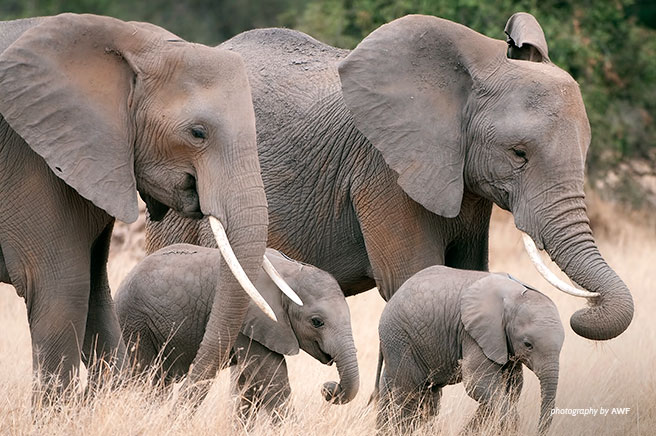Dismantling Elephant Poaching in Lower Zambezi

Despite being home to one of the largest elephant populations in Africa, the Lower Zambezi ecosystem had not been experiencing significant elephant poaching.
Poaching to supply the illicit ivory trade had largely been concentrated in Central and East Africa rather than this landscape, which spans Zambia, Mozambique and Zimbabwe. Now, however, “that wave of poaching seems to be migrating south,” says Ian Stevenson.
As CEO of Conservation Lower Zambezi, a conservation group that operates in Zambia’s Lower Zambezi National Park and the surrounding game management areas, Stevenson has witnessed firsthand how elephant poaching has changed in the past few years. “2013 was our lowest elephant poaching year in our recorded history. 2015, on the other hand, saw a marked increase, with elephant poaching higher than it has been in years,” he explains. “The poaching has become more professional and sophisticated, with organized criminal syndicates at play, rather than subsistence poaching.”
AWF has been providing Urgent Response Fund grants to CLZ to help combat this increase in professional poaching, supplementing CLZ’s work with Zambia Wildlife Authority (ZAWA) and with village game scouts. These game scouts and ZAWA officers were able to arrest three suspects, destroy 11 poachers’ camps and recover two firearms and 23 rounds of ammunition in a single quarter. We also helped CLZ purchase four specialized handheld GPS and data collection PDA units. These units allow rangers and game scouts to record the locations of illegal activity, such as poachers’ camps and ecological data, which will better inform where patrols should be undertaken.
More Bang for the Buck
While wildlife protection remains a core of CLZ’s work inside Lower Zambezi National Park, human–wildlife conflict remains a concern in the game management areas outside the park. Here, too, AWF support is helping.
“Thanks to AWF, we are trialing two pepper paintball guns that scouts can fire in the direction of elephants and divert them away from people’s crops,” explains Stevenson. “It hopefully will be more effective and also safer for game scouts than some of the other methods of mitigating human–elephant conflict.”
AWF began funding CLZ in 2013. Its Urgent Response Fund grants have provided what Stevenson notes is a significant contribution to CLZ’s budget. “We only have a few organizations that fund us to the extent that AWF does—you are definitely one of our key funders,” he observes.
“CLZ is a solid, well-known organization that has been working in the lower Zambezi for over 20 years. We have quite a bit of influence in the landscape,” Stevenson adds. “I believe AWF gets more bang for its buck by supporting an organization like us than doing one-off projects in the area.”
And, while elephant poaching has been increasing, CLZ’s CEO says the outlook remains positive in this landscape. “Elephant poaching is still among the lowest in Zambia because of the protection supplied by us, with support from AWF. We have quite a healthy elephant population here still,” he concludes.